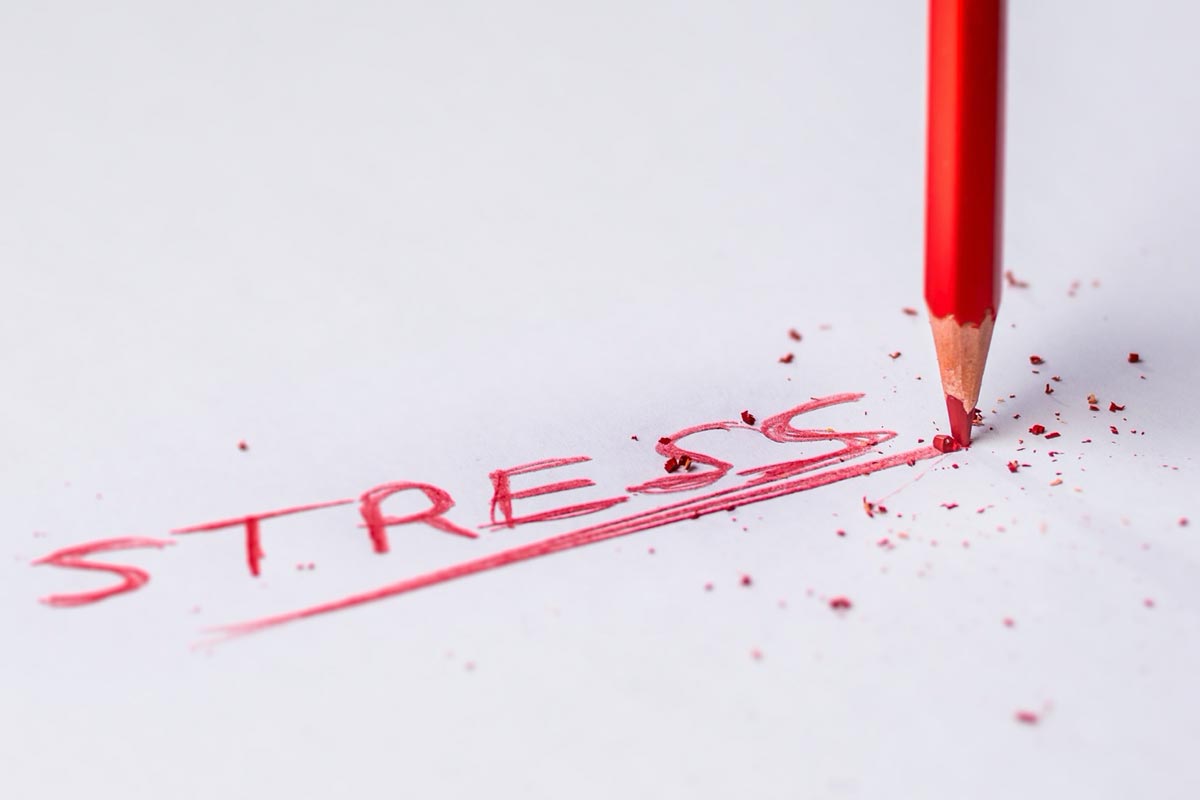Every day we are bombarded with stress triggers whether it is financial difficulties, worries about work, family concerns and relationship issues, plus an ongoing pandemic, it is no surprise that 56% of us are reporting stress symptoms.

Stress can be experienced in different ways although there are common symptoms that may be useful to identify.
- Feeling overwhelmed
- Nervous or constantly worrying
- Low mood
- Irritable
- Impatience
- Loosing positivity
- Low in self-esteem
- Finding hard to make decisions
- Racing thoughts
- Brain fog
Stress can also be experienced through several physical symptoms such as
- Muscle tension
- Panic attacks
- Feeling dizzy
- Headaches
- Difficulties sleeping or constantly being tired
- Bowel changes
- Reduced libido
Given the range of symptoms one can experienced when feeling stressed, learning how to manage these symptoms when they arise is as important as it can lead to heightened levels of cortisol and adrenaline which consequently causes health issues such as a thyroid problem, issues with digestive systems, increases the risk of a heart attack and can lead to a poor immune system.
- So how can we deal with stress?
For National Stress Awareness week, here are seven things you can try each day to help reduce your symptoms of stress
- Do not avoid
It may be easier said than done but not putting yourself in stressful situation or avoiding difficult conversations does not help with managing these stress symptoms long term. In fact, avoidance ends up exacerbating anxiety symptoms as it takes away the ability to address aspects of this stress that ultimately can help reduce it.
What might be more helpful is to identify the stressors causing these symptoms. Once you are able to identify what is causing you this stress, it may be helpful to identify whether you have the ability to do something about. Creating a plan for each stressor you can do something about and action it.
If there are things beyond your control, it is still important to acknowledge it. Give yourself time to feel the discomfort of the uncertainty and validate this emotion. Then pick something to help soothe you. - Set small goals
Sometimes our problems feel never ending. The work seems to pill up and the to-do list is unsurmountable. By breaking down larger tasks into smaller goals, you can break down tasks and help increase a focus on an easier task. Beach step you complete helps you gain a small victory which helps the brain process the project more easily.
Using the SMART (Specific, Measurable, Achievable, Realistic , Time) can also help break down your workload into a manageable format.
It is important to always be realistic about what you can do in the time and with the energy you have at the time to help lighten the burden. - Be active
Studies have shown that running can help cancel out the negative impact of chronic stress on the part of the brain that helps with learning and memory. Running also has been shown to reduce the likelihood of making memory-related errors.
If you don’t like running, group exercises also is a great stress relief as it helps reduce all types of stress symptoms far more than individual workouts. - Treat yourself
Sometimes when we feel overwhelmed, we can end up being unkind to ourselves by blaming ourselves for not doing things on time. It is important to show yourself some respect and kindness and by making sure you are treating yourself, you are reminding yourself that you are doing the best you can. You do not have to go to an expensive spa retreat, a simple hot bath, going for a nice dinner, walking along the harbour, going to a movie are all things that do not have to cost much but helps create opportunities for self-care. If pressed with time, using a meditation app such as ‘Headspace’ in your routine can also help break away from negative mental habits. - Keep a routine
Having a routine helps manage stress as the structure helps us feel less overwhelmed and keeps us in check. Your routine does not have to be back-to-back or overly complicated, having a general basic routine is more than enough as long as it includes a balance of pleasurable soothing activities and productive activities. Aiming for seven to nine hours of sleep at night, including a regular wind-down window also helps. - Taking care of your body
When we are stressed our body tends to react in a certain way so making sure we are taking good care of it helps lower stress levels. By balancing blood sugars, we can avoid the crashes in sugar that lead and stimulate the stress hormones – adrenaline and cortisol.
Having a small meal every 2-3 hours that contain protein (e.g. eggs, a piece of meat, tofu) can reduce cravings for sweet foods. Once the blood sugar is steadier and more balanced, the body will not crave sugary foods and will no longer feel a need for a quick fix which automatically reduces adrenaline levels as your mood is regulated and you feel calmer. - Communicate with others
Sometimes when we are anxious, we become irritable towards ourselves and others therefore leading us to want to isolate ourselves from others. However, to combat this, communicating how you feel with others can help release tension rather than keeping inside. Communication will help strengthen your relationships and connect with people which helps alleviate some of these stress symptoms.
If you are still struggling and need support, sometimes talking to a therapist can help identify some of these stress triggers and your therapist can help identify further techniques to guide you to manage these stress symptoms.
If you are interested in scheduling a session with Aurélie Comes or have further queries, please contact us today.

